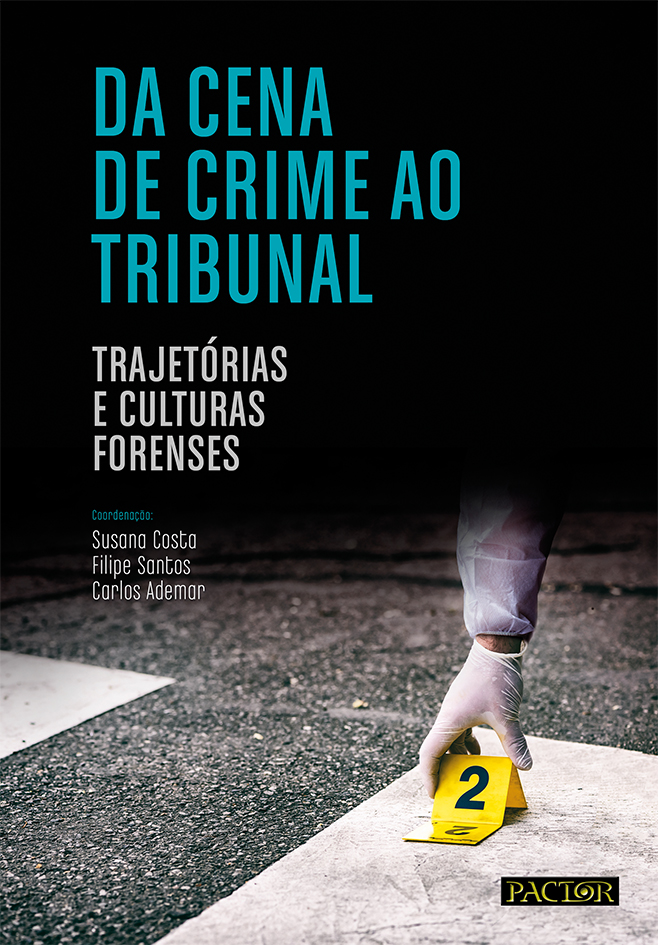Apresentação de livro
«Da Cena de Crime ao Tribunal: Trajetórias e Culturas Forenses» | Coord: Susana Costa, Filipe Santos e Carlos Ademar
15 de outubro de 2020, 17h30 (GMT + 01:00)
Auditório 1, Edifício Sede da Polícia Judiciária (R. Gomes Freire, Lisboa)
A obra será apresentada por José António Santos Cabral (Juiz Conselheiro do Supremo Tribunal de Justiça). Conta com a presença de Carlos Farinha (director-adjunto da Polícia Judiciária).
[Os/as interessados/as deverão comunicar a sua presença até 13 de outubro, enviando email para gabic@pj.pt]
O evento vai ser transmitido em streaming no site da Polícia Judiciária
Sinopse
A ciência e o direito podem ser entendidos como diferentes sistemas de autoridade, com distintas culturas e práticas. Desde a última década do século XX até aos dias de hoje, temos vindo a testemunhar o desenvolvimento e a expansão dos usos da ciência e da tecnologia no sistema de justiça criminal, assistindo-se a uma acelerada propensão para a coprodução da ciência e do direito, levando ao encontro de diferentes atores, saberes e práticas.
Da cena de crime ao tribunal: Trajetórias e culturas forenses resulta de uma Summer School promovida por uma parceria entre o Centro de Estudos Sociais da Universidade de Coimbra e a Escola de Polícia Judiciária (atualmente, Instituto de Polícia Judiciária e Ciências Criminais).
Este livro coletivo, que parte de um conjunto heterogéneo de saberes, práticas e olhares, proporciona uma discussão sobre as formas de conhecer as diferentes experiências vividas em função da posição ocupada por cada um dos atores que compõem as trajetórias dos vestígios, apresentando o percurso de um vestígio desde o local de crime até à sua conversão em elemento de prova e decisão judicial, através das perspetivas de polícias de investigação criminal e de proximidade, peritos forenses, juristas e sociólogos, com vista a articular as diferentes experiências, formas de conhecer e de atuar.
Trata-se de uma excelente ferramenta teórica e prática, pensada como um instrumento de trabalho destinado ao meio académico, estudantes e docentes, mas também aos profissionais ligados à justiça, ao crime e à investigação criminal, assim como ao sistema integrado de emergência médica.
Conteúdos abordados
Polícia de proximidade na cena de crime | Contributo da tecnologia | (In)visibilidades e “zonas cinzentas” na cena de crime | O Laboratório de Polícia Científica e a investigação criminal | Agressões sexuais | Base de Dados de Perfis de ADN | Partilha transnacional de informação | O contributo do ADN na investigação criminal | Análise de casos mediáticos da justiça portuguesa | O olhar de diferentes culturas epistémicas | A tecnologia de ADN no sistema de justiça criminal português


